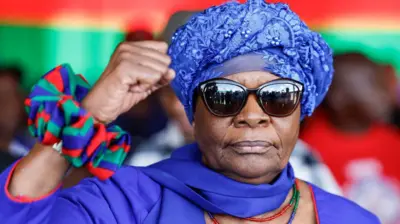We've updated our Privacy and Cookies Policy
We've made some important changes to our Privacy and Cookies Policy and we want you to know what this means for you and your data.
Bollywood challenges India's mental health taboo
Image source, AFP
- Author, News from Elsewhere...
- Role, ...as found by ґуПуґ«ГЅ Monitoring
Media and medical professionals are praising a new Bollywood film for shining a spotlight on the issue of mental health.
The coming-of-age drama "Dear Zindagi" (Dear Life) tells the story of a young cinematographer who grapples with commitment issues and insomnia. She decides to see a therapist who links her present troubles as well as her frosty relationship with her parents to unresolved childhood issues.
Seeking medical help for psychological issues is still largely taboo in India. Many equate mental illness with madness, and the country has a high suicide rate attributed to depression and anxiety.
Describing "Dear Zindagi" as a "smart film that shines a spotlight on mental health", prominent news portal praises it for asking uncomfortable questions. "There's a reason we don't talk about mental health, because we don't like to talk about ourselves, our inner fears and desires. We like to be accepted and liked and loved," Tanul Thakur says in the article.
Film critic Anupama Chopra writes in the newspaper that the feature "bravely tries to ease the stigma around mental health" and "this is an important conversation to have".
The film has also been welcomed by the medical profession. "A mainstream Hindi movie describing the key stages in psychotherapy, in a relatively non-cliched manner, is novel and necessary in today's mental health dialogue", clinical psychologist Hansika Kapoor .
In other attempts to bring mental health into the Indian mainstream, celebrities such as Bollywood actress Deepika Padukone and film director Karan Johar have openly spoken about their experiences with depression.
A recent advertisement on Indian television sponsored by highlights the issue of clinical depression with the tagline "Parwah hai toh dobara pucho" - "If you care, ask again".
Next story: Canadian drivers warned over car-licking moose
Use #NewsfromElsewhere to stay up-to-date with our reports via .
Top Stories
More to explore
Most read
Content is not available








